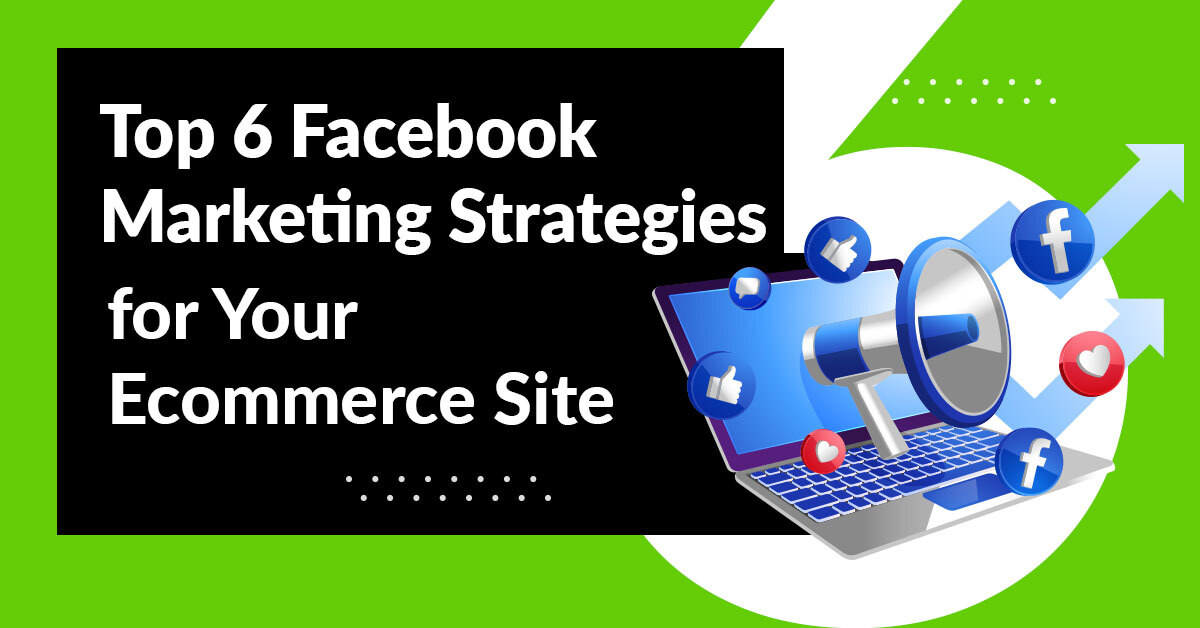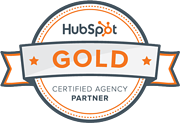They say that if you build a better mousetrap, the world will come knocking on your door. However, if you run an ecommerce business, you know that this isn’t exactly true – you can have the world’s best mousetrap, but there are a dozen mousetrap businesses like yours who are trying to convince consumers that their mousetraps are better. It’s easier than ever before to spin up your own ecommerce business, so how can you ensure that you’re standing out in a crowded online marketplace?
The new challenge for businesses with a great product idea isn’t to build a better mousetrap, it’s to sell that mousetrap online. And one of the best tools for marketing products online is Facebook, with roughly 3 billion active users every month – over a third of the entire world’s population.
Just being present on Facebook isn’t enough. To connect with this vast landscape of users, ecommerce businesses need a specific, well-honed Facebook marketing strategy tied specifically to their store’s – and customers’ – needs. With the right mix of Facebook marketing tactics, your brand will be the signal cutting through the noise, reaching your audience. If done poorly, however, you might be lost in the clutter.
In this blog, we’ll explore six of the most effective Facebook marketing strategies that can elevate your ecommerce store above your competitors. We’ll discuss targeting techniques, creative content, and smart optimization tactics that your business can put into effect today.
Facebook Marketing Strategy #1: Reach the Right People with Custom and Lookalike Audiences
Imagine trying to sell medical devices for arthritis relief to young men in their early 20s. Imagine trying to sell a fun PC gaming accessory to retirees. While you could possibly see some limited sales success – those retirement homes throw sick LAN parties, apparently – you’d probably have better luck flipping the two around.
If you’re going to quit reading this blog early and want just one main Facebook marketing tip and tactics takeaway, let it be this: You need to target the right audience.
Fortunately, Facebook makes it relatively easy for ecommerce businesses to reach out to the most receptive possible audience while also growing their reach into new markets. Two of the most potent tools for ecommerce brands are Custom Audiences and Lookalike Audiences. These options let you focus your advertising efforts on the users who are most likely to be interested in your brand, which increases your chances of conversion and improves your return on ad spend (ROAS).
Custom Audiences Engage (and Re-Engage) Interested Users
Custom Audiences let you connect with people who’ve already interacted with your brand in some form, like downloading a guide, signing up for a mailing list, or purchasing your products. You can create a custom audience by uploading a list of email addresses from any database you own. You can also target people who have visited your website or otherwise engaged with your Facebook content.
Not only is using Custom Audiences a Facebook marketing strategy that’s particularly effective for reaching new targets, it’s arguably even more effective for retargeting campaigns designed to market to “warm” audiences who are already familiar with your brand, like someone who added a product to their cart but didn’t make a purchase.
Lookalike Audiences Expand Your Reach

Once you’ve established one or more Custom Audiences, you can use that data to create a Lookalike Audience. Facebook analyzes your existing customers’ profiles and identifies new users who share similar characteristics. This lets you reach a broader audience while not going too dissimilar.
How to Use Lookalike Audiences Effectively
- Start with a small, highly targeted Custom Audience, (e.g., your top 1% of customers).
- Adjust the size of the Lookalike Audience depending on your goals. A smaller percentage (1-2%) offers higher relevance, while a larger one (5-10%) gives you significantly more reach.
- Regularly update and refresh your Lookalike audience to keep them relevant and avoid ad fatigue.
By using a Facebook targeting strategy that leverages these two groups, you can create a Facebook marketing campaign that is both expansive and precise, reaching users who are most likely to convert.
Facebook Marketing Strategy #2: Dynamic Product Ads Offer Personalized Shopping Experiences
Dynamic Product ads (DPAs) are a game-changer for ecommerce businesses on Facebook. Unlike standard ads, DPAs automatically show users personalized ads that feature products they’ve previously checked out on your website.
Marketing data is extremely clear here: Conversion rates are much higher in “warm” audiences that already have a familiarity with your brand than in “cold” audiences that have never heard of you before. This is what makes retargeting campaigns so effective. Multiple touch points between your brand and your prospective customers dramatically increase the likelihood that they’ll convert and make a purchase.
Properly using DPAs is an excellent Facebook marketing tactic, as these not only improve the user experience (if you’ve ever seen a product you were considering buying, forgotten what it was called, and then had it cross your social media feed seemingly randomly – it feels nice) but make it more likely you’ll earn a conversion.
Benefits of Dynamic Product Ads
- Efficient retargeting. DPAs excel at retargeting users who have shown interest in a specific product or products but haven’t made a purchase. By dynamically displaying the exact products a user has viewed or added to their cart, DPAs act like a reminder and a gentle nudge to complete the transaction.
- Increased engagement and conversions. Personalized ads that are highly relevant to a user tend to have higher engagement and conversion rates than generic ads that aren’t. DPAs ensure that users see products that are tailored to their interests, making them more likely to click through and convert.
- Cost-effective advertising. Since DPAs only target users who have already interacted with your brand in some form, like visiting your website, the chances of conversion are much higher. DPAs, therefore, are a very cost-effective option as they minimize wasted ad spend.
How to Set Up (and Optimize) DPAs
%20DPAs.jpg?width=860&height=628&name=How%20to%20Set%20Up%20(and%20Optimize)%20DPAs.jpg)
- Make sure your product catalog is properly updated with high-quality images and accurate descriptions.
- Craft compelling, engaging ad copy that highlights your products’ unique selling points (USPs) and includes clear calls to action like “Get Yours Today” or “Complete Your Purchase.”
- Test different formats for your DPAs, like carousel ads vs. single-image ads, to see which performs best.
- Regularly review and optimize your targeting settings to ensure your ads are being shown to the most relevant audiences.
Dynamic product ads let you deliver highly personalized ad experiences that drive conversions and improve your Facebook marketing ROI. Follow our Facebook marketing tips about harnessing the power of DPAs to boost your cost-effectiveness.
Facebook Marketing Strategy #3: Use Videos and Facebook Stories to Create Engaging Content

Content is the engine of any successful Facebook marketing strategy, but not all content is created equal.
To stand out in the crowded Facebook ecosystem, you need content that’s engaging, relevant, and tailored to your audience’s interests and needs. Videos and Facebook Stories are two particularly effective formats that can help you tell a narrative, interest users, and drive engagement. Let’s go over some of our Facebook marketing tips for why these are great tools to have in your marketing tool kit.
Why Do Videos Work as a Marketing Tactic?
If a picture is worth a thousand words, then think of how many words a video is worth! In seriousness, videos can be extremely effective ways for marketers to reach their audience.
- Videos can leverage many different elements to craft a narrative far more effectively than you can over images or text, like creative editing and use of things like music and animations. This makes them great at emotionally resonating with your audience – and an emotional connection makes a conversion more likely.
- Videos, provided they don’t rely too much on text, can be intuitively understandable even by people who don’t speak your language. A good video that is narratively clear can help your brand reach into other languages that you don’t speak – and may not have the budget to localize for.
- Videos are easily shareable. A good blog or infographic can get a couple of shares, certainly, but there’s rarely a viral blog or other piece of written content – virality is more of a video thing.
Video content has been shown to generate more engagement than any other type of content on Facebook – video ads have a quarter lower cost per action (CPA) compared to image-only ads.
Here are some types of videos that can help your ecommerce business get some curious eyeballs on the brand – and ultimately convert.
- Product demonstrations. Show your products in action, highlighting unique features, uses, and benefits. This helps potential customers visualize owning and using a product, which can make it more attractive to them.
- Customer testimonials. Authentic reviews from real customers add credibility to your brand, and help potential customers have trust that you’re not selling snake oil, but rather products that will genuinely improve their lives.
- Behind-the-scenes content. These videos give a glimpse into your company culture and values, product creation process, and day-to-day operations. This humanizes your brand, making it more than just a faceless logo – which fosters a stronger connection with your audience.
What Are Facebook Stories?
Facebook Stories offer a full-screen, immersive experience that can be great for grabbing attention quickly. Facebook Stories are a collection of photos and videos that can be shared and viewed without limit, but which disappear within 24 hours – making them more urgent to share and view.
Facebook Stories takes advantage of the Facebook app’s built-in camera, with its fun set of filters and other lenses. Users can attach many things to their Facebook Stories, like polls, quizzes, stickers, and more.
When using Facebook Stories, you should use bold, eye-catching visuals to draw attention. Keep your content extremely concise and action-minded, and include some aforementioned interactive elements like polls or quizzes to increase engagement.
Facebook Marketing Strategy #4: Adopt a Mobile-First Mentality
More than 90% of Facebook users access the platform via mobile devices like smartphones or tablets; this means a mobile-first approach is non-negotiable for your Facebook marketing tactics. This means designing ads and content that are optimized for smaller screens, fast loading, and mobile engagement.
Why Mobile Matters
Mobile users behave differently than desktop users and correspondingly consume content differently. Mobile users are often on the go and have shorter attention spans – which means ads that work well on desktop might not necessarily be as successful on mobile. Consequently, mobile optimization needs to be a priority for your Facebook marketing strategy.
Use vertical and square ad formats. These take up more screen real estate on mobile devices – at least, assuming the device is being held in the more common portrait mode – making them more eye-catching. These formats are the best suited for mobile-first ad strategies.
Your ads need to be “thumb-stoppers,” standing out in the sea of content on Facebook. Bold text, bright colors, and compelling animations (or at least a cat video) can help grab a user’s attention in the middle of scrolling through their feed.
Mobile Optimization Can’t Stop on Facebook
Imagine you have a perfectly mobile-optimized ad, and someone clicks it – only to be directed to a landing page clearly designed for desktop PCs. Your website and landing pages should be mobile-friendly and responsive, with quick loading times and an intuitive navigation experience. Test your ads on multiple devices and operating systems (iOS and Android, at least) and keep refining based on your performance data.
Facebook Marketing Strategy #5: Use Facebook Shops (or Marketplace)
Facebook, over the two or so decades it’s been around, has been gradually evolving from a pure social network into a comprehensive platform, including social commerce. Meta has two different ways for groups to sell products directly on Facebook, reducing friction in the buying process.
Facebook Marketplace
Marketplace was originally designed for peer-to-peer selling, which is still its main raison d'être today. However, while it is most commonly used for individuals to sell to each other, Marketplace now allows businesses to list products, particularly for local buyers. If you have some products that you would like to sell in your region – or to a specifically targeted region, like with a giveaway – you can use Facebook Marketplace.
Facebook Shops
Added to Facebook during the ecommerce boom of the early 2020s, Shops lets you create a customizable storefront on your Facebook page. This showcases your product catalog and lets users make purchases without ever leaving the Facebook platform.
You can customize layouts to reflect your brand’s aesthetic on Facebook Shops, and can integrate it with Instagram Shopping, creating a unified experience across both platforms.
How to Maximize Performance on Facebook Shops and Marketplace
- Keep your inventory updated to reflect new arrivals, new promotions, and your top bestsellers
- Use high-quality images and detailed, persuasive descriptions
- Promote your Facebook Shops or Marketplace listings with targeted ads.
Facebook’s social commerce features help you create a more integrated shopping experience that captures users directly within the platform. This increases the likelihood of conversion.
Facebook Marketing Strategy #6: Always Test and Optimize
Look, reader – I don’t know you. It’s possible you’re the Once and Future Marketer, the natural-born marketing genius who gets everything right on the first try.
But I’m guessing that like everyone else reading this blog post (or even me, writing it), you’re a human being who doesn’t always knock it out of the park on the first swing. Or, if nothing else, even if your idea is great, that doesn’t mean it can’t be better.
For the last entry in our Facebook marketing tips, we have this: A successful strategy for marketing on Facebook can’t be static. It requires continuous monitoring, testing, and optimization – for changes in user behavior, market trends, and platform algorithms.
Continuous A/B testing is your friend. Also called split testing, A/B testing involves creating multiple versions of an ad to determine which one performs better. Test elements like ad copy, visuals, or your targeting methods. However, always be sure to only test one thing at a time, or you’ll have trouble determining which factor is actually causing the changes in your results.
Facebook’s Ad Manager and Audience Insights are two vital tools for marketers to use in order to assess their metrics, tracking key indicators like click-through rates, conversion rates, and cost per conversion. These metrics can tell you how well your campaigns are performing.
Not all ads will perform equally, and that’s okay. Allocate more budget to the campaigns that are working and pull back on those that are underperforming. Regularly reviewing your ad spend and adjusting it based on data ensures that you’re getting the most bang for your buck.
Get Help From the People Who Know
A successful Facebook marketing strategy for ecommerce brands involves precision targeting, engaging content with a personal touch, mobile optimization – and, above all else, continuous improvement. We’ve gone over just some of the key Facebook marketing tips and tactics we’ve used ourselves to have success for our clients.
And, if becoming a Facebook marketing expert sounds a little too daunting, we can help you, too. SevenAtoms is an experienced Facebook marketing agency that can help your ecommerce business succeed on one of the largest social network platforms in the world – and more. Contact us today for a free consultation.










